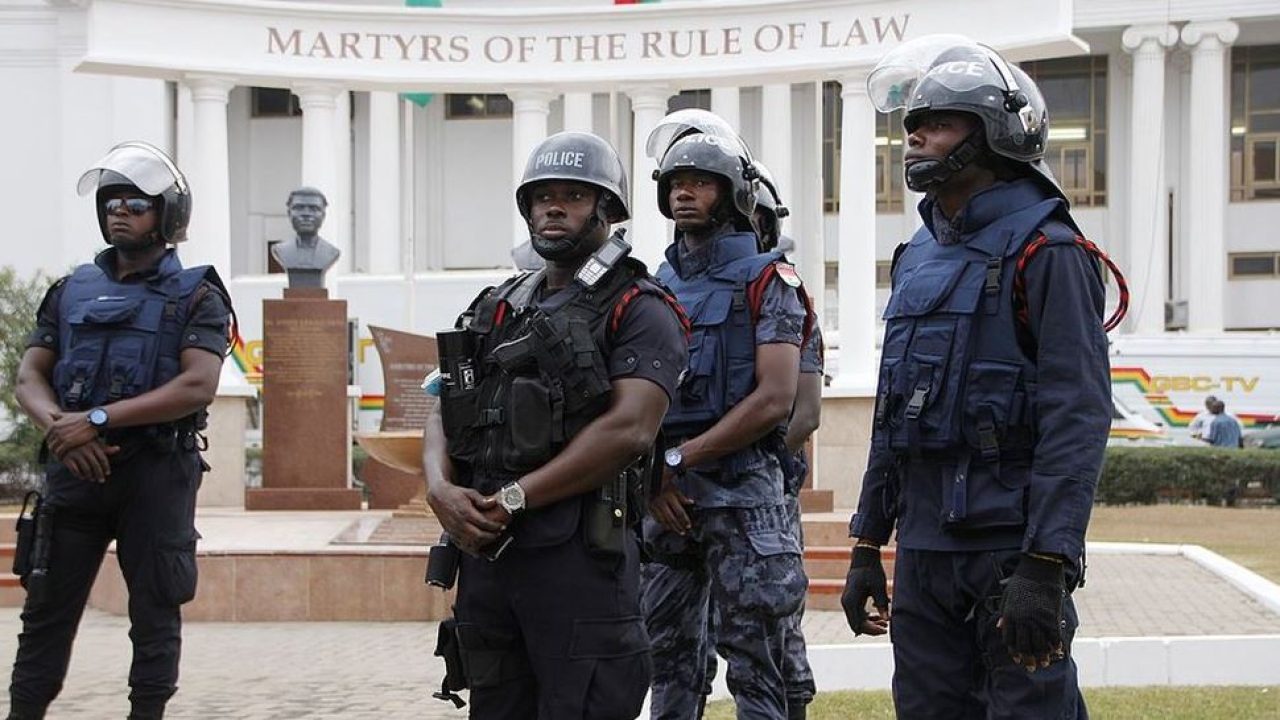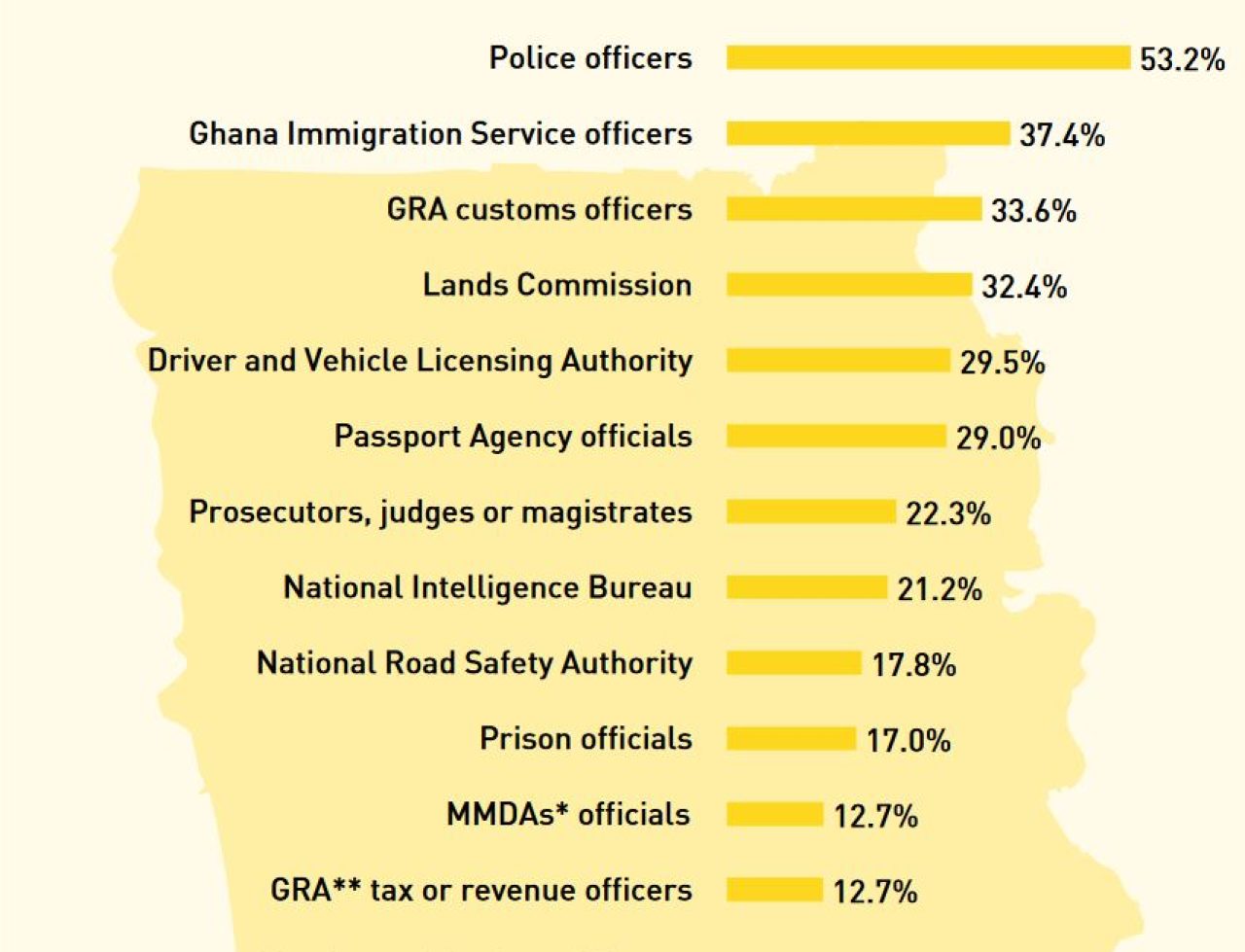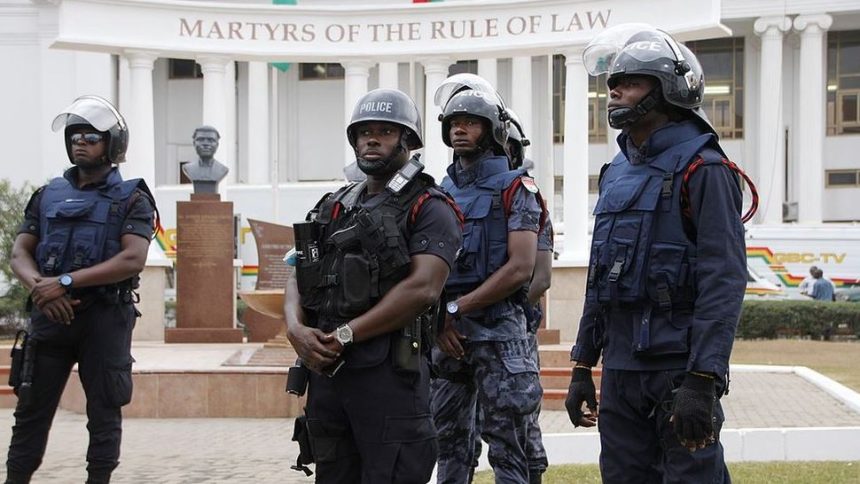The widespread problem of bribery in Ghana’s public sector has been made clear by a devastating 2022 corruption report on the country.

Notably, elected government officials only showed a 2.9 percent incidence of bribery, a significantly lower rate than the general population.
There are several ways that public officials can be bribed. In Ghana, cash is used for nearly nine out of ten payments (84.8%). Even while more bribes are paid in the form of food and drink in the country’s rural parts (17.8%) than in its urban areas (10.1%), these types of payments and the exchange of one public service for another are significantly less frequent.

The total amount of bribes paid in cash in Ghana is close to one third of the Ministry of Education’s budget for 2021.
The average bribe in Ghana is 348 Ghanaian cedis, and it is 1.5 times bigger in urban than rural sections of the nation. A total of approximately 5 billion Ghanaian cedi, or 32.9% of the Ministry of Education’s budget for 2021, was spent in bribes to public officials in Ghana in 2021, based on the estimated 17.4 million bribes that were paid there.





